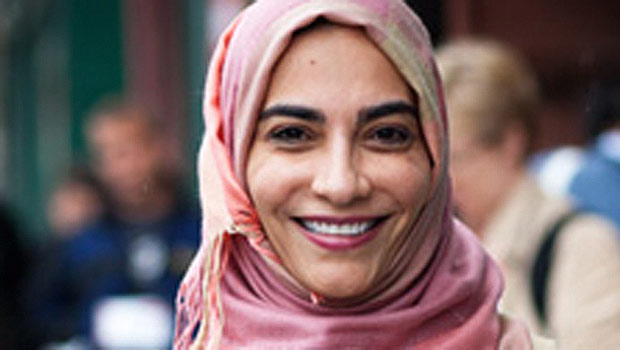Manal Al-Sharif, who hit the headlines when she openly flouted a Kingdom ban on driving, is the other.
The Daily Beast, which published the list, commended Sindi’s biotechnology research that has the potential to save millions of lives in the developing world, as well as running a foundation to support scientists in the Middle East.
Sindi is co-founder of Harvard’s Diagnostics for All, the organization developing a disease-diagnosing paper that changes color when dabbed with bodily fluids from a patient. The idea is to make it simple even for someone who is not a doctor to quickly and cheaply diagnose disease in places where doctors or clinics might be nonexistent.
“Hayat Sindi’s career as a scientist began with a fib. Keen to continue her studies abroad after high school in Saudi Arabia, she told her father she had been accepted at a university in London. Her traditional Muslim father said it would tarnish the family name living overseas alone. Still she persuaded him, and off she went,” the publisher of the list said.
“The truth was she hadn’t been accepted at any university. But upon arriving in London she got herself in to King’s College, and later to Cambridge,” it added.
The list also includes Nobel laureate Tawakkol Karman of Yemen, Nobel nominee Hawa Abdi of Somalia, Iman Al-Obeidi of Libya, Tal Al-Mallohi of Syria, Demad Dewerdash of Egypt and Noorjahan Akbar of Afghanistan.
“They have been featured in the list because of their trailblazing service to the women in the world and fostering a brave new generation. From Detroit to Kabul, these women are making their voices heard,” the magazine said.
Sindi has also been listed among 100 most powerful women in the Arab World in 2012 by the CEO magazine. Sheikh Lubna Al-Qasimi awarded her the prize in a function in Dubai recently.
Sindi currently is a fellow at PopTech, a US-based nonprofit that provides fellowships to scientists in an effort to foster global innovation.
She has also founded the Institute for Imagination and Ingenuity, which aims to help scientists write business plans and find investors for their ideas.
Sindi believed a major obstacle for Middle East scientists was that they were not savvy about putting together a business plan. As a result, venture capitalists in the region were wary of investing in science.
“I'm very proud of where I come from. Sometimes people think they need to completely discard their culture. But you have to hold on to your identity,” said Makkah-born Sindi, who is working mostly in the United States.
Sindi was honored for her pioneering work at a function in Riyadh Schools last week.










